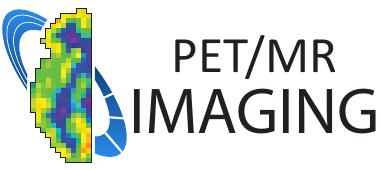Wording for MRI contraindications for Ethics applications – Insert the following on your consent forms:
Exclusions:
- You CANNOT participate if you have any of the following absolute contraindications:
- Cardiac pacemaker or defibrillator
- Metal fragment in eye or orbit
- Retained wires from an electronic implant that has been removed (i.e. pacemaker wires not attached to a pacemaker)
- Ferromagnetic aneurysm clip
- Pregnancy
- Stainless steel Intrauterine Device (IUD)
- Makeup tattoos that are not designed to fade over time
- Depending on the individual situation, you MAY NOT be able to participate if you have any of the following relative contraindications:
- Artificial heart valve
- Ear or eye implant
- Brain aneurysm clip
- Implanted electronic device (i.e. drug infusion pump, electrical stimulator)
- Coil, catheter or filter in any blood vessel
- Orthopedic hardware (artificial joint, plate, screws, rods)
- Other metallic prostheses
- Shrapnel, bullets, or other metallic fragments
If you have any of the above, your individual case will be reviewed by the MR Technologist and/or UBC Hospital Radiologist, and a decision will be made regarding your participation in the study. In many cases, an operative report may be required to assess the nature of the implants in your body.
Wording for the MRI Scan Procedure
Please ensure that a description similar to the one below, but accurate to your specific study procedure, is included in the consent form:
Upon arrival at the PET/MRI facility, you will be asked to complete a detailed MRI Safety Screening Form asking about contraindications to MRI. This form will be reviewed with you by the MRI Technologist to ensure your safety during the scanning session. You will be asked to change into hospital pajamas and to remove all metal objects (such as hearing aids, dentures, jewelry, watches, hairpins, and ALL piercings) from your body because these objects may be attracted to the scanner magnet with the potential risk of injury. Please remove ALL piercings and jewelry regardless of if you have been scanned before with it, the type of metal and location. Your exam may be canceled for safety or image quality reasons if you do not remove your piercings. Cotton/Poly blend undergarments and socks can be worn, but no athletic wear, anti-microbial fabrics or fabrics containing metal fibres, as they pose a risk of burns.
Once you are ready, you will be positioned on the scanner bed. An MRI coil, which is a specially designed antenna, will be placed around your head like a large helmet. You will then be gently slid into the center of the scanner, which has a bore diameter of 60 cm (23.6 inches). The scanning procedure will take no longer than [##] minutes, after which you will be brought out of the scanner.
Incidental Findings:
As this will NOT be a medically indicated examination, there will be no formal review of the scans and no report will be made. The MRI scan being done is designed to answer research questions, not examine you medically. This MRI scan is not a substitute for one a doctor would order. It may not show problems that would be picked up by a medical MRI scan. However, if we believe that we have found a medical problem in your MRI scan, we will ask a doctor who is trained in the reading of MRI scans, a radiologist, to help us review the images. If the radiologist thinks that there may be an abnormality in your MRI scan that requires follow-up, we will contact you and with your permission, contact your family physician and help him or her obtain the appropriate follow-up for you. No information generated in this study will become part of your permanent medical record. However, if the study detects an abnormality in your MRI scan and further follow-up is required, then this information may become part of your record.
